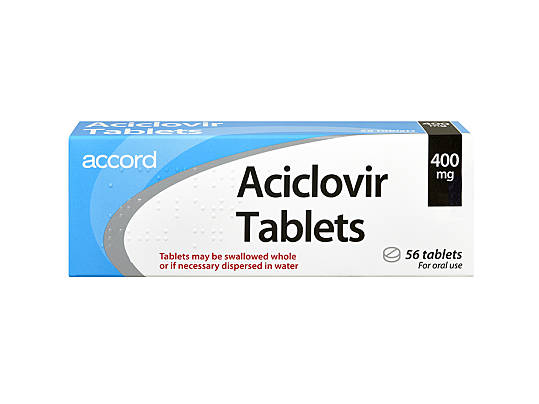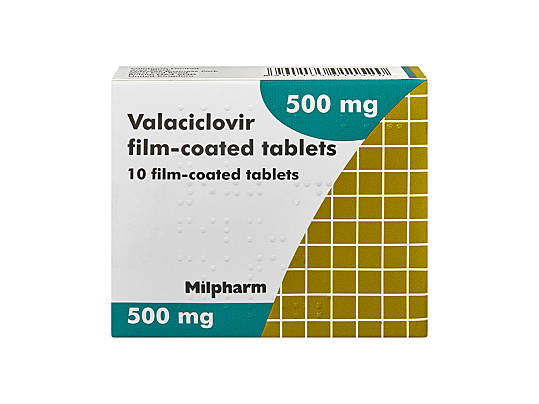How do you catch genital herpes?

Medically reviewed by
Dr Kathryn BasfordLast reviewed: 01 Jul 2022
Genital herpes is a type of sexually transmitted infection (STI). It can be passed from one person to another from sexual contact. This does not just have to be from having sex, but can also be from any skin to skin contact including oral sex, and can be passed on by sharing sex toys.
Herpes can be passed on very easily. If you or a sexual partner have genital herpes or cold sores, you should avoid any sexual contact while you have sores or blisters or if it feels like an outbreak is about to start. It is possible to pass on the virus without having symptoms. Using a condom can help to stop the virus from being spread, but if there are sores on the areas of skin which are not covered by the condom, it can still be passed on. If you or your partner has herpes, get treated and wait for the sores to heal before being intimate with each other.
What is genital herpes?
Genital herpes is a common type of sexually transmitted infection. You can get genital herpes from having vaginal sex, anal sex or oral sex. You can also get genital herpes from skin to skin contact, without having penetrative sex.
Genital herpes occurs when you get infected with the herpes simplex virus (HSV). There are 2 types of herpes virus, HSV-1 and HSV-2. Genital herpes can be caused by both types of HSV. HSV also causes cold sores when it affects the area around the mouth.
Genital herpes forms small, red blisters around your genital area, including your bottom and thighs. Condoms may not always protect you from getting genital herpes as they will not be able to cover all the affected skin.
The symptoms of genital herpes do not always appear as soon as you’ve had unprotected sex. The herpes virus hides from your immune system and can lay dormant for months. You can get the symptoms of genital herpes months or years after catching the virus when your immune system is weaker.
from £75.00

No results found.
Please check your spelling or try another treatment name.
How do you catch genital herpes?
Sexually transmitted infections (STIs) like herpes are passed on through sexual contact. Condoms are the best way to protect against STIs as they form a physical barrier. However, condoms do not always protect you against genital herpes. This is because the blisters and sores can spread outside the area covered by the condom. Touching any exposed herpes sores can pass on the virus to you.
You can also get herpes if you come into contact with:
- saliva or the skin around the mouth of someone with oral herpes
- genital fluids or the skin around the genitals of someone with genital herpes
It’s also possible to get herpes from a partner who has the virus but has no symptoms.
It’s important to get treated for herpes first and let the lesions heal before having sex again.
Understanding how you can get herpes is important to keep yourself and others safe.
Herpes is transmitted through unprotected sexual contact, but there are some exceptions. It’s not just penetrative sex that passes on genital herpes.
Can you give herpes to someone without an outbreak?
Yes, you can give someone else herpes without having an outbreak because of shedding of the virus. This is most likely to happen in the first year after getting the virus, or if you have a lot of outbreaks.
To protect yourself from getting herpes, use a condom whenever you have sex.
Can you catch herpes without having sex?
Yes, you can get herpes without having sex. If you have cold sores, you can pass the herpes virus on through kissing or oral sex, and by touching parts of the skin that have an infected sore. The herpes virus can also affect other parts of the body, including fingers (herpetic whitlow), and can be passed on from the finger to the genital area by touching.
If you’re pregnant, you might also pass the herpes virus on to your baby at the time of delivery. Babies born with herpes are at risk of serious complications. Speak to your doctor or midwife if you have had genital herpes in the past, or if you think you might have it.
Can you get herpes from kissing?
Yes, you can get herpes from kissing if the other person has cold sores.
You’re very unlikely to get genital herpes from kissing someone, but you can get genital herpes from oral sex if the other person has a cold sore.
Can you catch herpes from a toilet seat?
You cannot get herpes from a toilet seat. Herpes is passed on when you make contact with someone’s infected skin.
The virus can only survive outside the human body for a short amount of time, so it will not be able to live on a toilet seat. Other viruses, such as norovirus, can survive outside the body for around 2 weeks.
It’s a good idea to keep your toilet at home clean to reduce the spread of bacteria and viruses. Always wash your hands with warm soapy water after using the toilet.
Can you catch herpes from a towel?
No, you cannot catch herpes from a towel. Like with a toilet seat, the herpes virus cannot survive outside the human body. The virus will not be able to live on the material of a towel.
Similarly, you will not catch herpes from using a swimming pool that other people have used as the virus cannot survive in the water.
Can you get genital herpes from a cold sore?
Yes, cold sores are blisters on or around your mouth caused by HSV-1. HSV-1 can also cause genital herpes. You can pass on the herpes virus to someone if you have oral sex with them while you have cold sores or if you are about to get a cold sore. You should treat any cold sores before having oral sex.
Treatment options for herpes
There is no cure for herpes, but you can take treatment to shorten the length of an outbreak.
You can get treated for herpes by taking antiviral medication. There are several types of antiviral medication, including aciclovir, valaciclovir and famciclovir. They all work by preventing the virus from replicating inside your body.
If this is the first time you’ve had herpes, you’ll be given a short course of antiviral medication. You can take the same medication again if you get another outbreak of herpes.
If you get recurrent episodes of herpes (more than 6 outbreaks a year), you might be given suppressive treatment. This means you’ll have to take antiviral treatment every day over a longer period of time.
You can request antiviral medicines from Asda Online Doctor. This can be for your first episode of genital herpes or a recurrent outbreak. Simply fill out our short questionnaire which will be reviewed by our doctors. We can then post the treatment straight to your doorstep in discreet packaging. You can also choose to collect it from your nearest Asda Pharmacy.
from £18.00
from £36.00

No results found.
Please check your spelling or try another treatment name.
How to prevent transmitting genital herpes
If you have herpes, you can prevent the spread of the virus by getting treated. While you’re taking medication, avoid having sex until the sores and blisters are healed up. This can take a few weeks. If you have sex before this, even if it is with a condom, you’ll risk passing the infection on to someone else.
To prevent getting herpes in the first place, make sure you practise safe sex by using condoms correctly whenever you have sex, and avoid sharing sex toys.

Dr Kathryn Basford is a qualified GP who works as a GP in London, as well as with ZAVA. She graduated from the University of Manchester and completed her GP training through Whipps Cross Hospital in London.
Meet our doctorsArticle created: 01 Jul 2022
Last reviewed: 01 Jul 2022
-
Herpes simplex - genital (NICE) [May 2017] [accessed April 2022]
-
Genital herpes (NHS) [Sept 2020] [accessed April 2022]
-
Herpes simplex virus, WHO [accessed April 2022]
-
Is It Possible to Catch Herpes from a Toilet Seat? (Healthline) [March 2018] [accessed April 2022]
-
Can You Get Herpes from a Dirty Towel? (Healthline) [May 2021] [accessed April 2022]




(Reviews are for ZAVA UK)


GMC: 7074021

GMC: 6149061

GMC: 7085115










